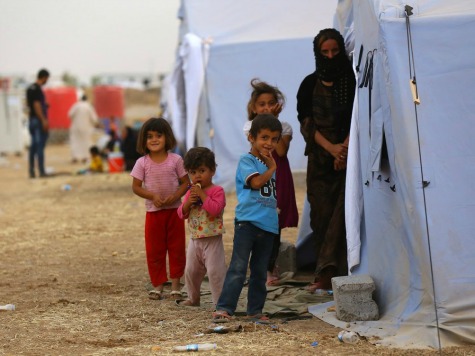
The Islamic State– formerly Islamic State of Iraq and al-Sham (ISIS)– has previously used water as a destructive tool to destroy crops and dams in Shi’ite territory. Now, ISIS is attempting to deprive major Christian strongholds of water through their control of pipe systems.
According to Bloomberg Businessweek, the city most affected by ISIS’s new campaign to deny water to as many Christians and Shi’ites in Iraq as possible is the city of Qaraqosh, currently under control of Kurdish Peshmerga forces and, thus, impenetrable to the terrorist jihadist group. Their only current connection to Qaraqosh is a water pipeline from the Tigris River, and ISIS has worked diligently to exploit this one tie by cutting off the water supply from the historic river.
Iraq’s water supply comes mainly from two rivers– the Tigris and Euphrates, between which the ancient civilization of Mesopotamia arose. With ISIS controlling the Tigris water supply, any influence on water from the Euphrates could be pivotal to eradicating Christians and Shi’ites from Iraq. Shi’ites in southern Iraq are in particular danger as, without water from either river being irrigated down, they have no other source of water immediately available.
Lebanon’s Daily Star reports that ISIS is keenly aware of this, and has made moves to attempt to control the Euphrates water supply. It threatens key pipelines south to the Shi’ite populations, creating critical problems for the area should they capture these supplies: “seasonal droughts cannot be managed, electricity cannot be generated, proper sanitation practices are near impossible and the local economy grinds to a virtual halt.”
ISIS began to use water as a weapon of war in a very different way. When it took control of the Fallujah dam, for example, the jihadists closed off the water supply to the south Euphrates using the dam, then reopened it– flooding major areas and wasting potable water. “The intent behind the water release was to use water aggressively as a tool of destruction, targeting populations who live father south,” said Russell Sticklor, co-author of Water Challenges and Cooperative Response in the Middle East and North Africa, to the Daily Star. Now, ISIS is actively trying to deprive areas of water– not surfeit them with it– in an attempt to starve out minority groups it opposes.

COMMENTS
Please let us know if you're having issues with commenting.